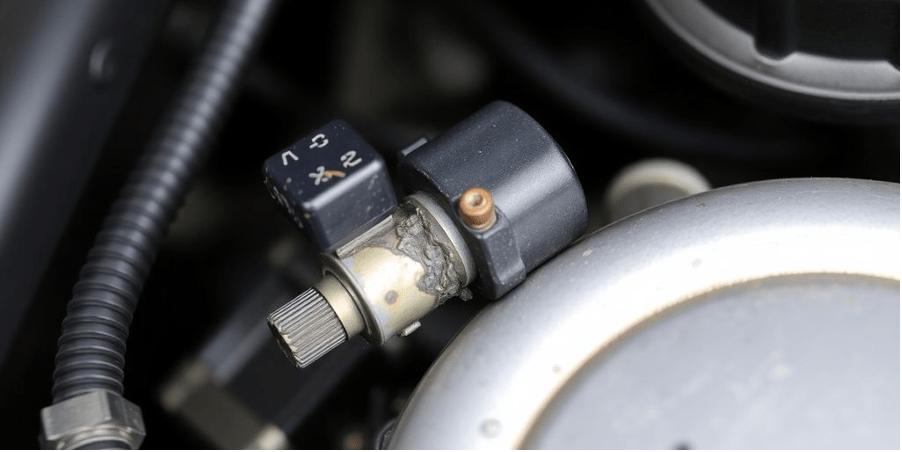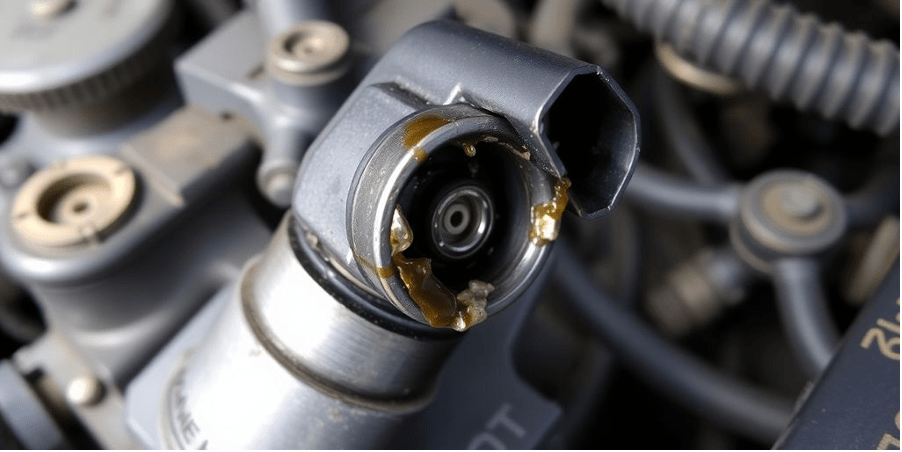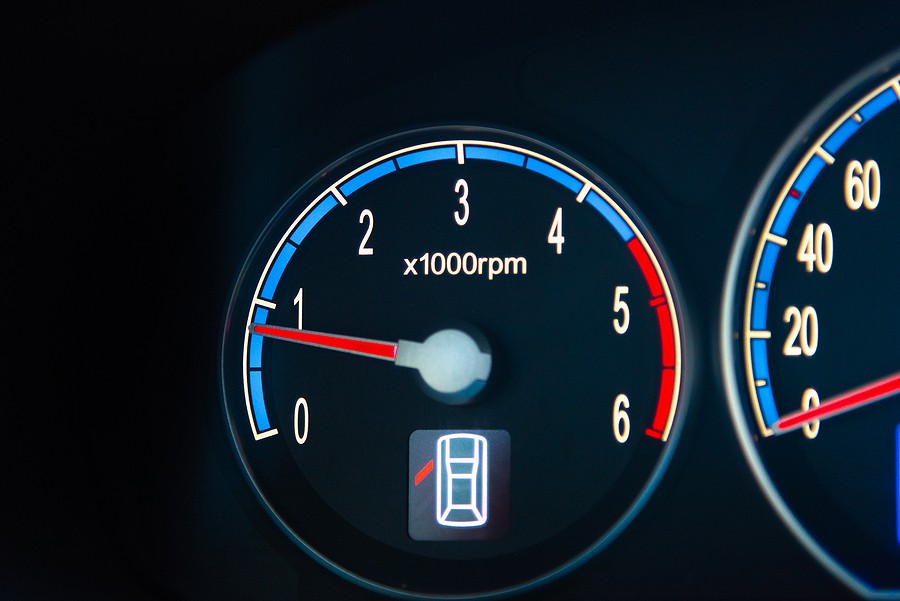Key Takeaways
- An oil pressure sensor is crucial for monitoring your car's engine health, and selling a car with a damaged one can be tricky.
- Legally, you might have to disclose the issue to potential buyers, depending on where you live.
- Selling a car with a known problem can affect how buyers see the car and can impact the final sale price.
- Repairing the sensor can be a cost-effective solution, but selling ‘as-is' might also be an option if you're upfront about the problem.
- Being transparent and honest in your listings can help build trust with potential buyers, even if the car has issues.
Understanding the Role of an Oil Pressure Sensor

What Does an Oil Pressure Sensor Do?
An oil pressure sensor is a small but mighty component in your car's engine. It keeps an eye on the oil pressure and sends this info to the car's computer. Without it, you wouldn't know if your engine is getting the right amount of oil. This little gadget helps prevent engine damage by warning you when the oil pressure is off.
Common Symptoms of a Faulty Oil Pressure Sensor
When this sensor starts acting up, you'll probably notice a few telltale signs:
- The oil pressure warning light on your dashboard might flicker or stay on.
- You could see inaccurate oil pressure readings.
- Sometimes, there might be oil leaks around the sensor.
If you spot these symptoms, it's time to check things out.
Importance of a Functional Oil Pressure Sensor
A working oil pressure sensor isn't just a luxury—it's a necessity. This sensor helps in tracking oil pressure levels, which is crucial for keeping your engine in good shape. If it's not functioning properly, you risk running your engine without enough oil, which can lead to serious damage or even engine failure.
Keeping your oil pressure sensor in top shape is a small step that can save you from big headaches down the road. It's like having a reliable friend who warns you when something's wrong with your car, so you can fix it before it becomes a major problem.
Legal Considerations When Selling a Car with a Damaged Oil Pressure Sensor

Disclosure Requirements for Sellers
When you're selling a car, honesty is the best policy, especially if there's a damaged oil pressure sensor involved. Sellers are legally required to disclose any known issues with the vehicle. This means if you know the sensor's on the fritz, you gotta tell potential buyers. It's not just about being nice—it's the law. Keeping things transparent helps avoid any nasty surprises down the road.
Potential Legal Consequences
Failing to disclose a faulty oil pressure sensor can lead to serious legal trouble. Buyers might have grounds to take legal action if they find out you hid this info. This could mean anything from refunding the purchase price to covering repair costs. In some cases, it might even involve court battles. So, it's wise to be upfront about the car's condition from the start.
State-Specific Regulations
Different states have different rules when it comes to selling cars with known defects. Some states have “as-is” laws, meaning buyers accept the car in its current condition, while others require full disclosure of any issues. It's crucial to check your state's regulations to ensure you're compliant. Knowing the rules can save you from a lot of headaches later on.
Selling a car with a damaged oil pressure sensor isn't just about fixing the part—it's about understanding your legal obligations and protecting yourself from future problems.
Assessing the Risks of Selling a Car with a Damaged Oil Pressure Sensor
Impact on Vehicle Performance
When your car's oil pressure sensor is out of whack, it might not seem like a big deal at first. But, if ignored, it can lead to serious issues. The sensor's main job is to monitor oil pressure, ensuring the engine gets enough lubrication. Without it working right, you might not know if your car's engine is running low on oil, which could lead to engine wear or even failure.
Buyer Perception and Trust
Selling a car with a known issue, like a damaged oil pressure sensor, can be tricky. Buyers are often wary of cars with problems, fearing hidden costs down the road. To build trust, it's important to be upfront about any issues. This honesty can actually be a selling point, showing potential buyers that you're transparent and reliable.
Long-Term Consequences for the Seller
If you sell a car without disclosing its problems, you could face trouble later. Buyers might come back with complaints or even legal action if they feel misled. It's always better to lay all your cards on the table from the start. This way, you avoid future headaches and maintain a good reputation.
Selling a car “as-is” might seem like the easy route, but it’s important to weigh the risks. Disclosing issues upfront can save you from a lot of hassle and protect your standing as a trustworthy seller.
- Be honest about the car's condition.
- Consider fixing major issues before selling.
- Understand the potential legal implications.
By addressing these points, you can manage the risks associated with selling a car with a damaged oil pressure sensor, ensuring a smoother transaction for both you and the buyer.
Repairing or Replacing a Damaged Oil Pressure Sensor
Cost of Repairing an Oil Pressure Sensor
When your oil pressure sensor starts acting up, it's time to think about repairs. The cost can vary quite a bit depending on your car's make and model. On average, you're looking at spending between $100 and $300. This includes labor and parts. If you drive a luxury vehicle, expect the price to be on the higher end. It's always a good idea to get a few quotes from different mechanics to make sure you're not overpaying.
DIY vs. Professional Repair
So, you're thinking about fixing it yourself? Well, if you're handy with tools and have some mechanical know-how, a DIY repair might be the way to go. Just make sure you've got the right parts and tools. But, if you're not so confident, hiring a professional is probably your best bet. A skilled mechanic can ensure the job is done right and save you a lot of hassle. Plus, they'll often offer a warranty on their work, which is a nice safety net.
Finding a Reliable Mechanic
Finding a good mechanic can feel like searching for a needle in a haystack. Here are some tips:
- Ask friends or family for recommendations.
- Check online reviews and ratings.
- Visit the shop and get a feel for their customer service.
A trustworthy mechanic not only fixes your car but also gives you peace of mind. It's worth taking the time to find someone you can rely on.
Alternative Solutions to Selling a Car with a Damaged Oil Pressure Sensor
Selling a car “as-is” can be a straightforward way to handle a vehicle with issues like a damaged oil pressure sensor. The main advantage is simplicity; you avoid the hassle of repairs and can sell the car quickly. However, the downside is that you might have to lower the price significantly. Buyers will be wary of the potential costs involved in fixing the sensor and any related problems.
Offering a Warranty or Discount
Another option is to sweeten the deal by offering a warranty or discount. A warranty can reassure buyers, making them feel more secure about their purchase. Alternatively, a discount can make the car more attractive despite its issues. By being upfront about the sensor problem and compensating for it, you build trust with potential buyers.
Trading In vs. Selling Privately
When deciding between trading in your car or selling it privately, consider the benefits of each. Trading in is usually faster and less stressful, but you might get less money for your car. Selling privately can fetch a higher price, but it requires more effort and time. Weigh your priorities to choose the best route for you.
Selling a car with a known issue like a damaged oil pressure sensor doesn't have to be a headache. By understanding your options and being honest with buyers, you can still make a successful sale.
Marketing Strategies for Selling a Car with Known Issues
Highlighting the Car's Strengths
When selling a car with issues, it's key to emphasize its good points. Focus on aspects like low mileage, recent maintenance, or a clean interior. Mention any upgrades or features that add value, such as a new stereo system or recent tire replacements. By spotlighting these positives, you can shift the buyer's attention from the flaws.
Being Transparent in Listings
Honesty is the best policy when listing your car. Clearly state the known issues, like the damaged oil pressure sensor, in the description. This builds trust with potential buyers and sets realistic expectations. Transparency can prevent future disputes and shows that you're upfront about the car's condition.
Negotiating with Potential Buyers
Negotiation is part of the car selling process, especially with known issues. Be prepared to discuss how the car's problems affect its price. You might offer a discount or be willing to negotiate repairs as part of the deal. A flexible approach can lead to a successful sale and leave both parties satisfied.
Selling a car with known issues doesn't have to be a hassle. By focusing on the positives, being honest, and staying open to negotiation, you can find the right buyer and make a fair deal.
Understanding Buyer Concerns and Questions
Common Buyer Questions About Oil Pressure Sensors
When selling a car with a damaged oil pressure sensor, potential buyers often have a lot of questions. They might ask about the exact nature of the problem and how it affects the car's performance. Buyers also want to know if the issue is a simple sensor fault or if it indicates a more serious engine problem. It's important to be ready with honest and clear answers to help ease their worries.
Addressing Buyer Concerns Effectively
Addressing buyer concerns requires transparency. Be upfront about the sensor issue and any steps you've taken to diagnose or fix it. Consider providing a detailed report from a mechanic if available. This not only builds trust but also demonstrates that you're not hiding anything. You might also want to discuss the cost implications of the repair, so buyers know what to expect.
Building Trust with Potential Buyers
Building trust is key when selling a car with known issues. Start by being open about the car's condition in your listing. Highlight any positive aspects of the vehicle to balance out the negative. Offering a test drive can also help reassure buyers. They get to see how the car handles and assess the impact of the sensor issue themselves.
Selling a car with a damaged oil pressure sensor can seem daunting, but with honesty and openness, you can find a buyer who appreciates your transparency and is willing to take on the repair.
For more information about handling vehicle issues, especially when dealing with a car dealer who acknowledges sensor warnings, it's crucial to maintain transparency and clear communication with potential buyers.
Wrapping It Up
So, can you sell a car with a busted oil pressure sensor? Sure, you can, but it's not all sunshine and rainbows. You gotta be upfront about it. Buyers appreciate honesty, and it saves you from headaches down the road. Plus, fixing it might not be as pricey as you think, and it could make your car way more appealing. If you're not into DIY, a quick trip to the mechanic could do the trick. At the end of the day, it's all about weighing your options and deciding what's best for you and your ride. Just remember, a little transparency goes a long way.
Frequently Asked Questions
What does an oil pressure sensor do?
An oil pressure sensor keeps track of the oil pressure in your car’s engine. It tells you if the oil pressure is too low, which can help prevent engine damage.
What happens if my car has a bad oil pressure sensor?
If the sensor is bad, you might see a warning light on your dashboard or get false readings. This could make it hard to know if your engine is running safely.
Do I need to tell buyers about a faulty oil pressure sensor?
Yes, it's important to let buyers know about any issues, including a faulty oil pressure sensor, to be honest and avoid legal problems later.
Can I still drive my car if the oil pressure sensor is damaged?
You might be able to drive, but it's risky. Without accurate readings, you won’t know if your engine is getting enough oil, which can cause serious damage.
How much does it cost to fix an oil pressure sensor?
Fixing an oil pressure sensor can cost between $100 and $300, depending on your car model and where you get it fixed.
Is it better to sell my car as-is or fix the sensor first?
Selling as-is can be quicker, but fixing the sensor might help you get a better price and make the car more appealing to buyers.



